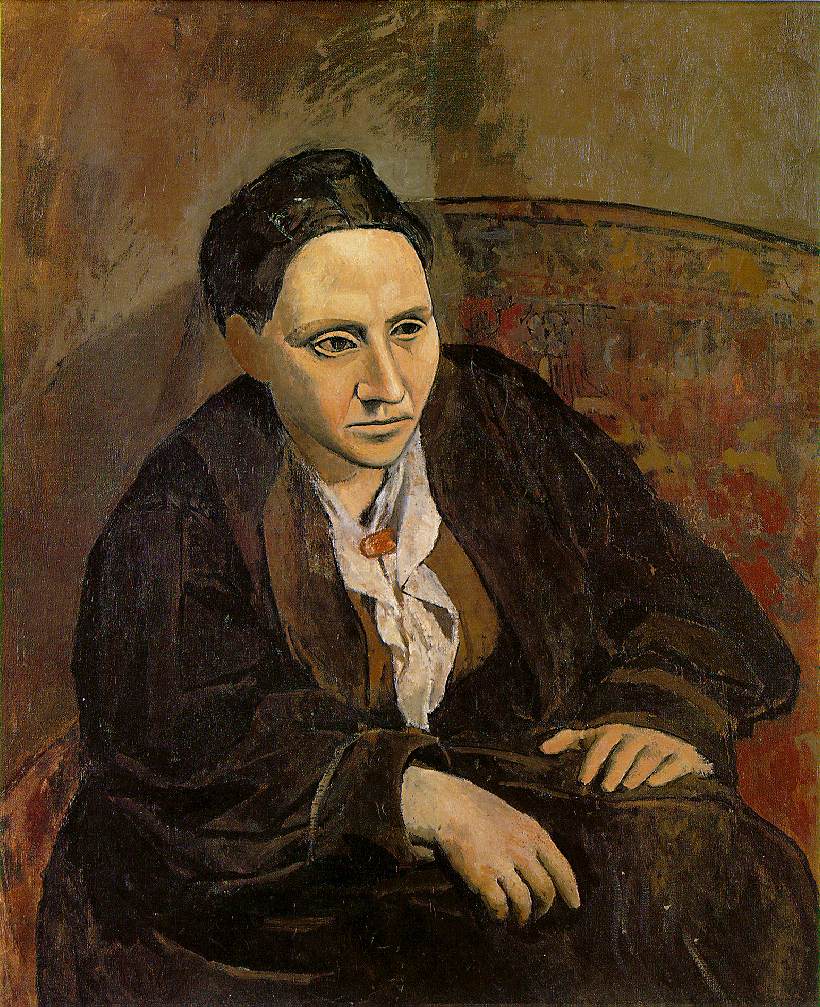
If Wednesday was confusing, go and take a class on literary criticism and it will help you. Wallace Stevens was an originator of reality; he did not copy things as they were but things as they should be. His philosophy was that if you have to be an imitator, you should imitate the eternal form of things. We need to adjust the way we see so that we can visualize the real things. In the world of Wallace Stevens, no longer being deep is a good thing. Picasso painted Gertrude Stein, and everyone said that it looked nothing like her, the phenomenal object, and so Picasso replied, “That's all right, it will.” In time, she will come to resemble this thing. It is the essence of Gertrude Stein and not her image.
The artist does not imitate reality, they create reality. Mimesis & Poeisis are truly important. If you think mimetically you are imitating what you see in nature, but if you think poetically you are creating things that do not show up in nature. We tend to try to make things correspond to what we see in reality. What would happen if we could see things the way they really are, instead of seeing things through a glass darkly?
We could not see anything at all until an artist came along and taught us how to see that way.
Poetry is the subject of the poem. Films about film are some of the greatest films there are; songs are all about songs. Van Gogh saw things as they were, like in Starry Night.
Fabric does not hold in such a way. Poetry is a verb, the poet's job is to dress those around him, to help them see things as they really are. In the soul, the heart is of the greatest importance. James' reading was a beautiful illustration of brick allure, of taking a bunch of beautiful things and putting them together. We patch things together as we can. The man with the blue guitar is a tailor, he is going to put them together as they are. Stevens is not dictatorial, his color references are not set in stone.
How is it possible for us to see things beyond what they are, but yet still see them as they are? Think of all the ways you have been trained to see by people who are not poets, and then think of the training you've received by those who are. It will not be a man who will lead us out of our delusions; a man cannot do this for us. The man that Stevens would have us follow is a fiction, like Dr. Who : “I'm not a hero, I'm really just a madman in a box.”
Stevens and Seuss really had a lot in common if you stop to think about it.
We are moving into a place where there are not even any shadows, there is only the bright light of masculine clarity. It becomes a very masculine world; even the woman singing has a sort of masculine quality to her, an aggressiveness. Are we going to be able to create an order from this rage?
The earth, for us, is flat and bare.
There are no shadows. Poetry
Exceeding music must take the place
Of empty heaven and its hymns,
Ourselves in poetry must take their place,
Even in the chattering of your guitar.
A tune beyond us as we are,
Yet nothing changed by the blue guitar;
Gertrude Stein on her portrait: "I was and still am satisfied with my portrait, for me it is I, and it is the only reproduction of me which is always I, for me."






